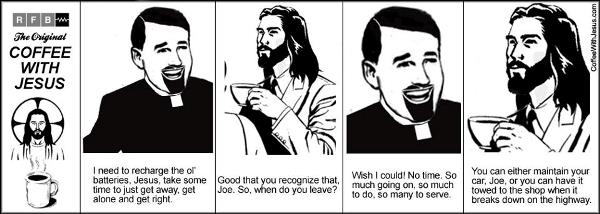This is a serious question:
If somebody is telling you a flat-out lie, and I report, “This is what they’re saying,” without describing it as the truth or as a lie, Then am I telling you the truth to you? Or am I lying to you?
Related to that:

If somebody is telling a flat-out lie, and the Bible reports, “This is what they said,” without describing it as either truthful or a lie, Then is the Bible speaking truth? Or is it lying?
Of course, I’m going to argue that if the Bible is just reporting what they said, that this it is telling the truth, even if what it is truthfully reporting is a lie. Even when the Bible accurately quotes their lying words, it is telling the truth, and you can have confidence that they did, indeed, tell that lie.
For example, when Bildad the Shuhite says to Job, “When your children sinned against him, [God] gave them over to the penalty of their sin,” [Job 8:4] and the Bible truthfully reports Bildad’s fake news, then the Bible is still speaking the truth, even if Job’s children never sinned, and even if Bildad can’t tell his sphincter from a scepter.
Or when the Bible accurately quotes a snake calling God a liar, and declaring “For God knows that when you eat from it your eyes will be opened, and you will be like God, knowing good and evil,” [Genesis 3:5], then the Bible is still telling the truth, even though the words it is quoting are a flat-out lie, literally straight from the devil’s mouth.
This leads to a very awkward and uncomfortable place. I’m going to say this bluntly:
- Not everything the Bible says is true.
- Some of what the Bible says is a lie, because
- Sometimes the Bible truthfully reports people’s lies.
That’s going to trigger some folks, but take a deep breath and think about it: we’ve just discussed two specific lies that the Bible quotes. The Bible accurately (“truthfully”) reports the lies. But they’re still lies. They’re still in the Bible. The Bible contains these two lies (and many more).
What’s even more challenging is that the Bible doesn’t generally identify whether people are speaking the truth or telling a lie, just like it doesn’t comment on whether what they’re doing is wise or stupid. It never commented that the snake was lying, or that Bildad was lying.
And there are some epic examples of stupid choices and stupid thinking that the Bible reports to us. If you think about it, you can think of several yourself.
“But what about that verse that says it’s all inspired?”
The verse actually says, “All Scripture is God-breathed and is useful for teaching, rebuking, correcting and training in righteousness.” [2 Timothy 3:16] Yep. That’s what it says. And yes, this is true!
So yeah, it’s still good for teaching, rebuking, correcting and training in righteousness. Some of it, by virtue of accurately reporting people’s stupid choices, is particularly helpful for the rebuking and correcting parts! (Yes, David really did seduce his good friend’s wife, and then murder that friend to cover it up. No, we are not teaching that you need to do the same thing!)
In other words, yes, the Bible is still precious, and it is still God-breathed and useful nutrition for saints. But like all nutrition, some of it needs to be chewed well before the nutrients are available to help saints grow.
Don’t just grab pieces and swallow them whole. Find out who said it, who they said it to, and the circumstances they were said in. Learn to chew your food carefully.
 I’ve been burned badly by “crazy prayers” that I’ve prayed which were not on the heart of my Father, but which he graciously answered anyway. Took the better part of a decade to get over one of them. His grace, his kindness during that decade were overwhelming.
I’ve been burned badly by “crazy prayers” that I’ve prayed which were not on the heart of my Father, but which he graciously answered anyway. Took the better part of a decade to get over one of them. His grace, his kindness during that decade were overwhelming. 







